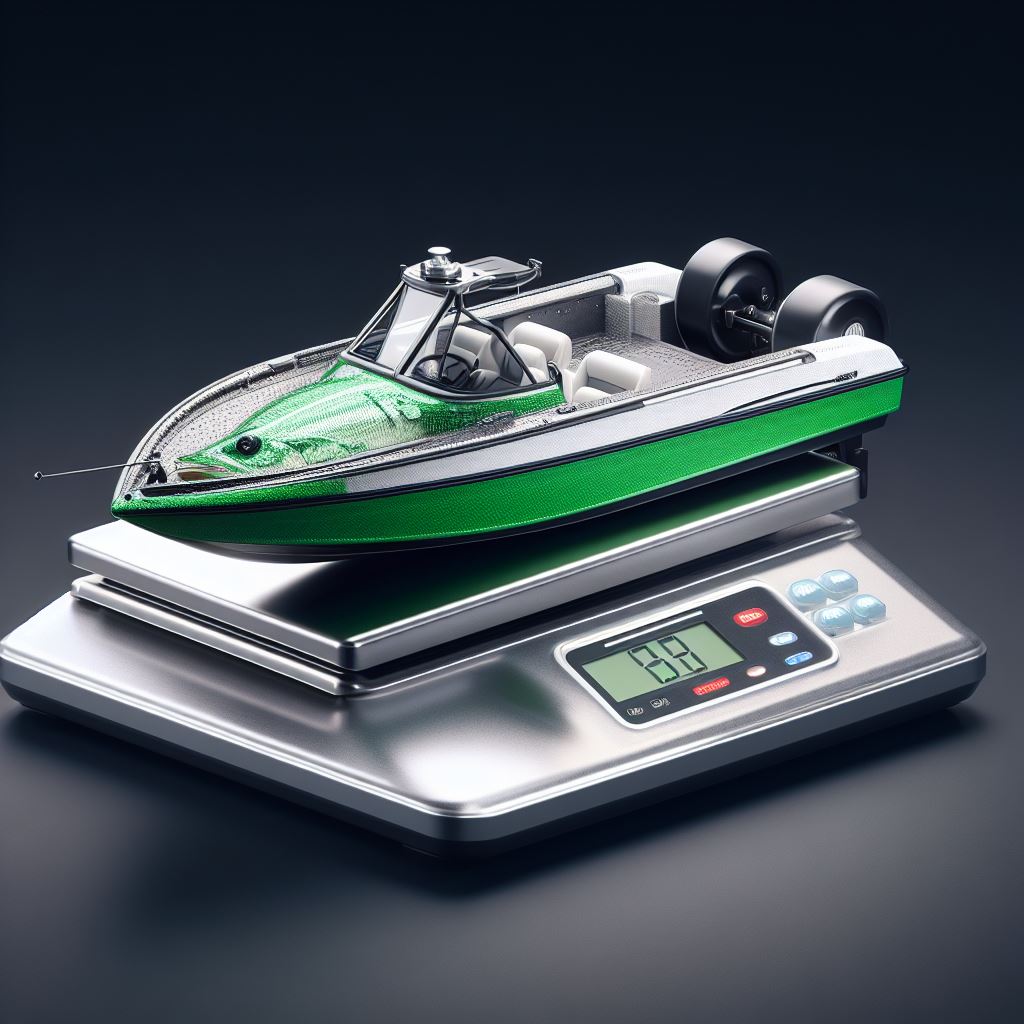In the world of bass fishing, it’s all about the features that make a bass boat the ultimate angler’s companion. From the spinny chairs that allow for quick maneuverability to the storage boxes that keep your gear organized and easily accessible, bass boats are designed with practicality in mind. But it doesn’t stop there – live wells also play a crucial role in keeping your catch alive and healthy. However, it’s not just about the features when it comes to bass boats; weight capacity is a crucial consideration as well. With factors like the materials of construction, trailer weight, fuel, and fishing gear, understanding the weight capacity is paramount for ensuring a safe and enjoyable fishing experience. So before you head out on your next bass fishing excursion, make sure you know the ins and outs of your boat’s weight capacity – because safety always comes first on the water.
Weight Capacity and Factors Affecting Weight
Average weight range of a bass boat
Bass boats are designed specifically for bass fishing and are equipped with various features to enhance the angler’s experience. One important factor to consider when purchasing a bass boat is its weight capacity. The weight of a bass boat can vary depending on several factors, including its size, materials, and construction.
On average, a bass boat can weigh anywhere from 1,000 to over 2,000 pounds when it is dry, meaning it does not have any additional weight onboard, such as fuel, fishing gear, or accessories. However, when fully loaded with fuel, fishing equipment, coolers, and other accessories, the weight of a bass boat can increase significantly. In some cases, the total weight of a bass boat, including the trailer, can reach up to 5,500 pounds.
Factors that contribute to the weight
Several factors contribute to the overall weight of a bass boat. One of the most significant factors is the choice of materials used in its construction. Bass boats are commonly made of either aluminum or fiberglass, each with its own advantages and characteristics.
Aluminum boats are generally lighter than fiberglass boats, which can affect their performance on the water. However, fiberglass boats tend to be stronger and more durable, making them better suited for rougher waters. The materials used in the construction of a bass boat can significantly influence its weight and overall performance.
Another factor that affects the weight of a bass boat is its construction. The design and construction of the hull, deck, and other components can contribute to the overall weight. Some bass boats are designed with a heavier hull for added stability, while others prioritize speed and maneuverability. Additionally, the inclusion of features such as livewells, storage boxes, and seating options can also add weight to the boat.
Importance of knowing weight capacity
Knowing the weight capacity of a bass boat is crucial for several reasons. Firstly, exceeding the recommended weight capacity can have a negative impact on the boat’s performance and safety. When a boat is overloaded, it can become difficult to control, especially during high-speed maneuvers or in rough waters. This can increase the risk of accidents and jeopardize the safety of everyone on board.
Secondly, exceeding the weight capacity of a bass boat can also cause damage to its structure and components. The added weight can put excessive strain on the boat’s transom, hull, and other structural elements, leading to structural issues or even failure. It is essential to respect the manufacturer’s guidelines regarding weight capacity to ensure the longevity and reliability of the boat.
Finally, knowing the weight capacity of a bass boat is crucial for planning and organizing your fishing trips. By knowing the maximum weight allowance, you can properly distribute the weight on the boat, ensuring optimal balance and stability. This can enhance your overall fishing experience and provide a safer and more enjoyable outing.
Examples of popular bass boat models and their weights
To provide a better understanding of the weight range of bass boats, let’s take a look at some examples of popular models and their weights. Please note that the weights mentioned here are approximate and may vary depending on specific configurations and optional features.
- Tracker Boats Pro Team 190 TX: This bass boat has a dry weight of 1,048 pounds and a loaded weight of 2,300 pounds. It measures approximately 18 feet and 7 inches in length.
- NITRO Z17: The dry weight of the NITRO Z17 is around 1,450 pounds, and its loaded weight can reach up to 2,650 pounds. This bass boat measures about 17 feet and 4 inches in length.
- Ranger Boats Z521L: The Ranger Boats Z521L is a larger bass boat, with a dry weight of 1,950 pounds and a loaded weight of 5,400 pounds. It measures approximately 21 feet and 3 inches in length.
These examples demonstrate the variation in weight among different bass boat models. It’s important to note that these weights do not include the weight of the trailer or any additional gear and accessories.
Impact of exceeding recommended weight capacity
Exceeding the recommended weight capacity of a bass boat can have significant consequences on its performance, safety, and longevity. When a boat is overloaded, it can compromise its stability, maneuverability, and overall control.
One of the most immediate effects of exceeding the weight capacity is a decrease in speed and acceleration. The additional weight creates more drag on the boat, making it harder for the engine to propel the vessel forward. This can result in reduced fuel efficiency and slower response times.
Furthermore, an overloaded bass boat may experience handling issues, particularly during turns or in rough waters. The extra weight can cause the boat to become less responsive and more prone to sloshing from side to side. This can affect the angler’s ability to control the boat and increase the risk of accidents, including capsizing or swamping.
Exceeding the weight capacity can also lead to structural problems. The added strain on the boat’s components, such as the transom, hull, and stringers, can cause them to weaken or fail prematurely. This can result in expensive repairs or, in extreme cases, render the boat unusable.
Lastly, exceeding the weight capacity of a bass boat can have legal implications, as it may violate boating regulations in your area. Authorities enforce weight limits to ensure the safety of boaters and protect the environment. Violating these limits can result in fines and other penalties.
To ensure a safe and enjoyable bass fishing experience, it is crucial to never exceed the recommended weight capacity of your boat. Distribute the weight evenly and avoid overloading the boat with excessive gear, equipment, or passengers. By doing so, you can have peace of mind knowing that you are maximizing the performance, safety, and longevity of your bass boat.


